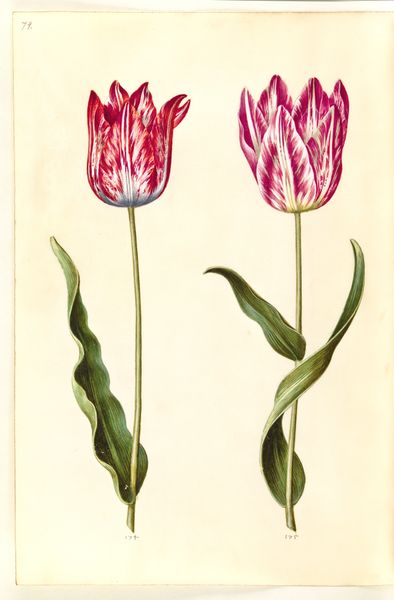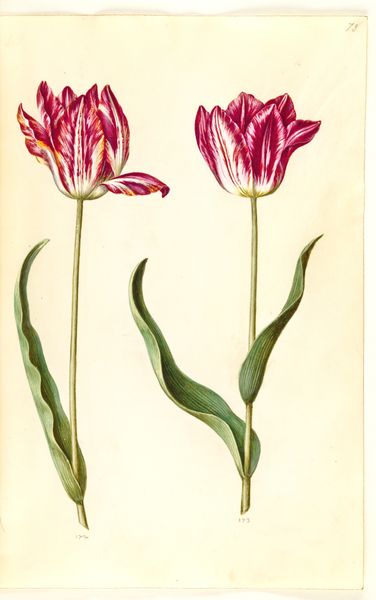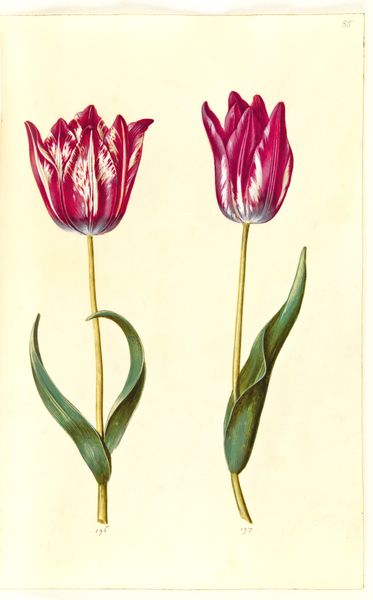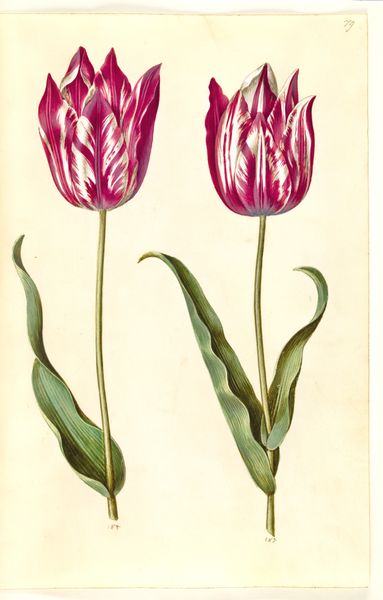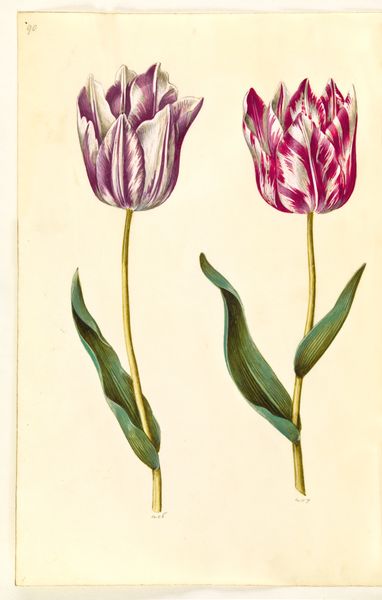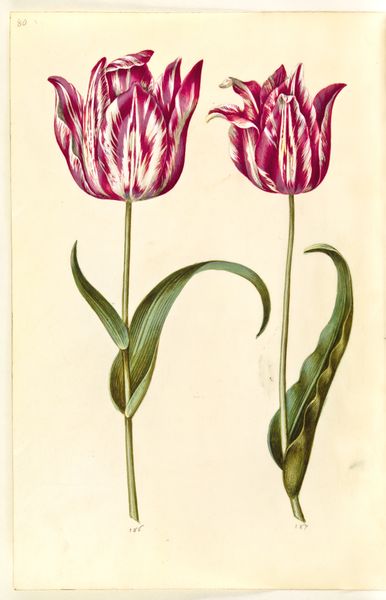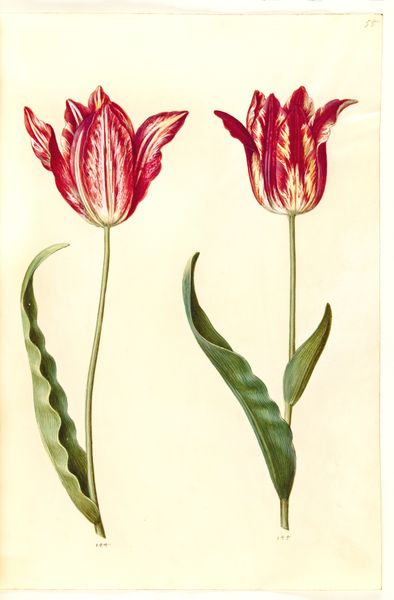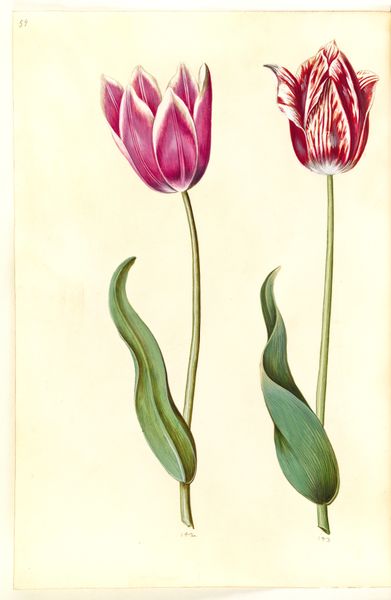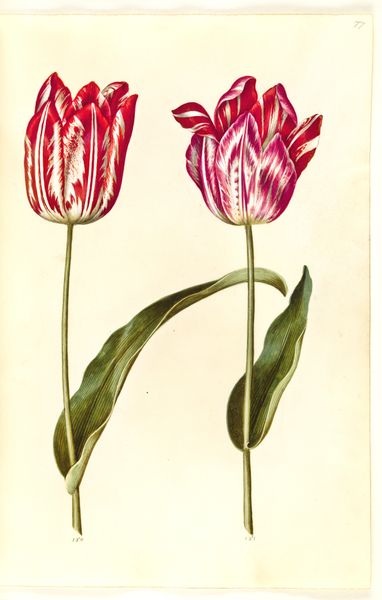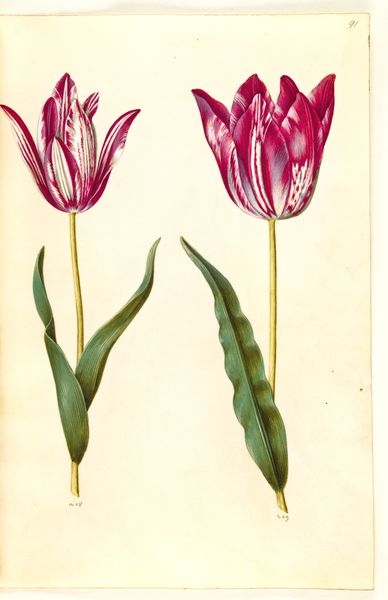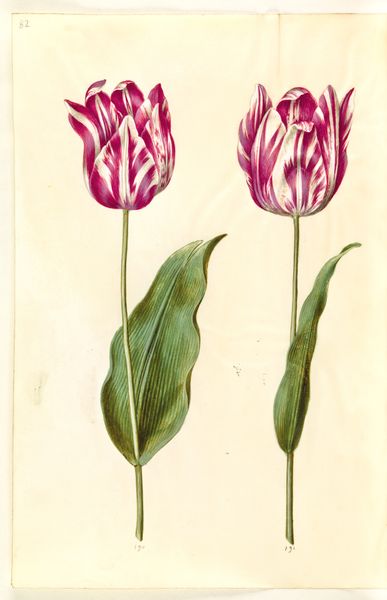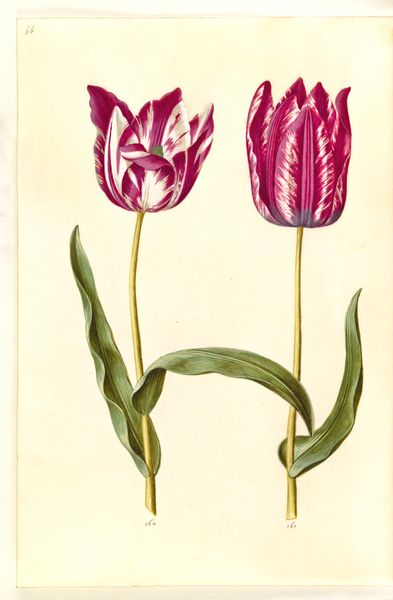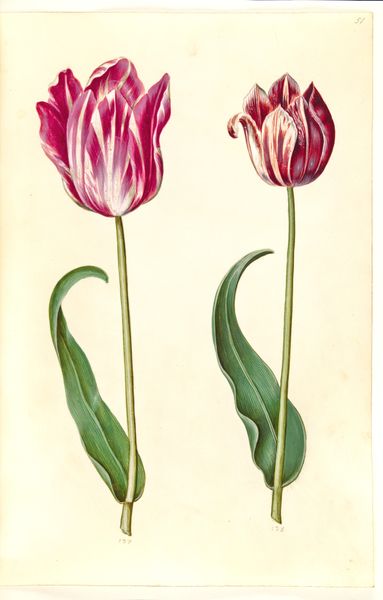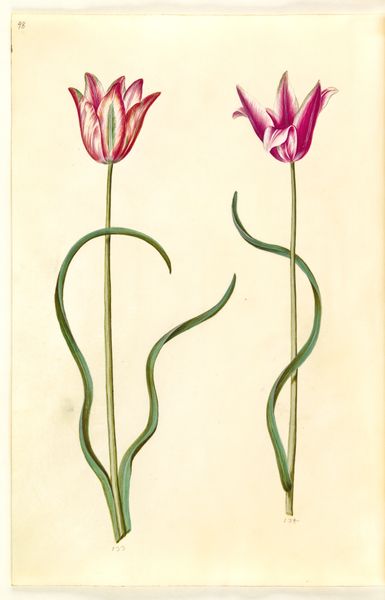
drawing, gouache
#
drawing
#
dutch-golden-age
#
gouache
#
landscape
#
botanical art
#
realism
Dimensions: 375 mm (height) x 265 mm (width) x 85 mm (depth) (monteringsmaal), 358 mm (height) x 250 mm (width) (bladmaal)
Hans Simon Holtzbecker made this botanical study of Tulipa gesneriana with watercolour and gouache on paper. Holtzbecker was known for his botanical illustrations, and this vibrant piece exemplifies his meticulous technique. Note how he captured the tulip's form with a sense of volume, the way the light interacts with the petals, and the contrasting textures of the smooth leaves versus the delicate flower. The medium of watercolour allows for translucent layers, building up the depth of color. Gouache, an opaque watercolor, would have added richness and highlights, bringing out the red and white striations. Paintings like this were not just artworks, they served as scientific documents. They were commissioned by wealthy patrons, eager to record exotic plants. The tulip itself was a luxury good, subject to wild speculation, and so this image exists at the intersection of art, science, and commerce. It reminds us that even the most delicate artwork can be deeply intertwined with the social and economic currents of its time.
Comments
No comments
Be the first to comment and join the conversation on the ultimate creative platform.
